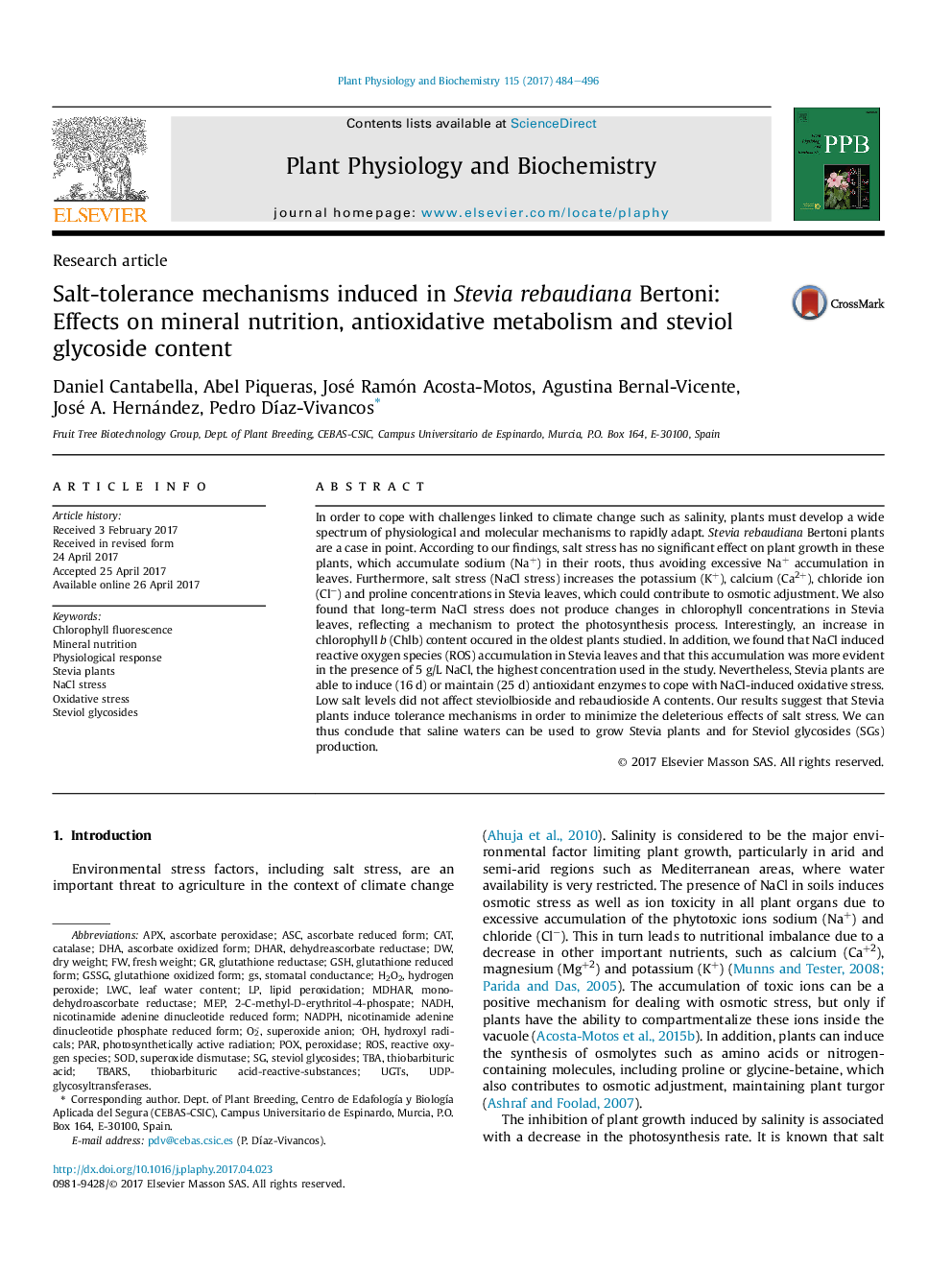| کد مقاله | کد نشریه | سال انتشار | مقاله انگلیسی | نسخه تمام متن |
|---|---|---|---|---|
| 5515412 | 1541906 | 2017 | 13 صفحه PDF | دانلود رایگان |

- Salt stress did not significantly affect plant growth in Stevia plants.
- An increase in fluorescence chlorophyll parameters occurred at long-term NaCl stress.
- Stevia plants induced antioxidant defenses to cope with NaCl-induced oxidative stress.
- Salt stress increased Rebaudioside A contents.
- NaCl waters can be used to grow Stevia plants and Steviol glycosides production.
In order to cope with challenges linked to climate change such as salinity, plants must develop a wide spectrum of physiological and molecular mechanisms to rapidly adapt. Stevia rebaudiana Bertoni plants are a case in point. According to our findings, salt stress has no significant effect on plant growth in these plants, which accumulate sodium (Na+) in their roots, thus avoiding excessive Na+ accumulation in leaves. Furthermore, salt stress (NaCl stress) increases the potassium (K+), calcium (Ca2+), chloride ion (Clâ) and proline concentrations in Stevia leaves, which could contribute to osmotic adjustment. We also found that long-term NaCl stress does not produce changes in chlorophyll concentrations in Stevia leaves, reflecting a mechanism to protect the photosynthesis process. Interestingly, an increase in chlorophyll b (Chlb) content occured in the oldest plants studied. In addition, we found that NaCl induced reactive oxygen species (ROS) accumulation in Stevia leaves and that this accumulation was more evident in the presence of 5Â g/L NaCl, the highest concentration used in the study. Nevertheless, Stevia plants are able to induce (16Â d) or maintain (25Â d) antioxidant enzymes to cope with NaCl-induced oxidative stress. Low salt levels did not affect steviolbioside and rebaudioside A contents. Our results suggest that Stevia plants induce tolerance mechanisms in order to minimize the deleterious effects of salt stress. We can thus conclude that saline waters can be used to grow Stevia plants and for Steviol glycosides (SGs) production.
Journal: Plant Physiology and Biochemistry - Volume 115, June 2017, Pages 484-496